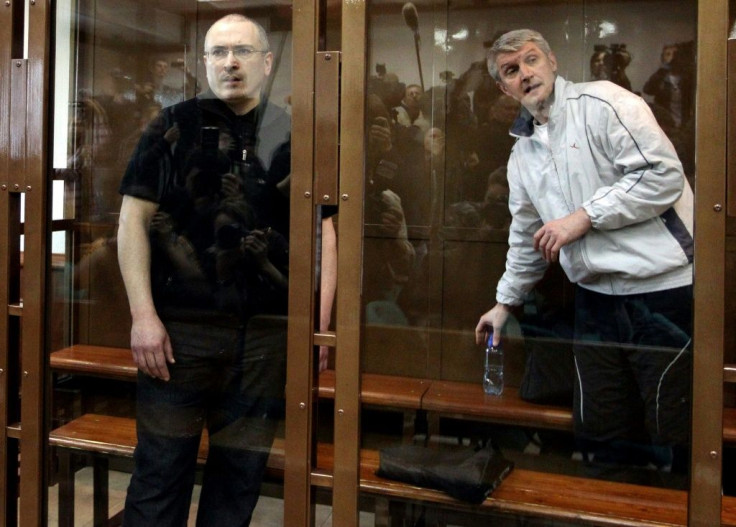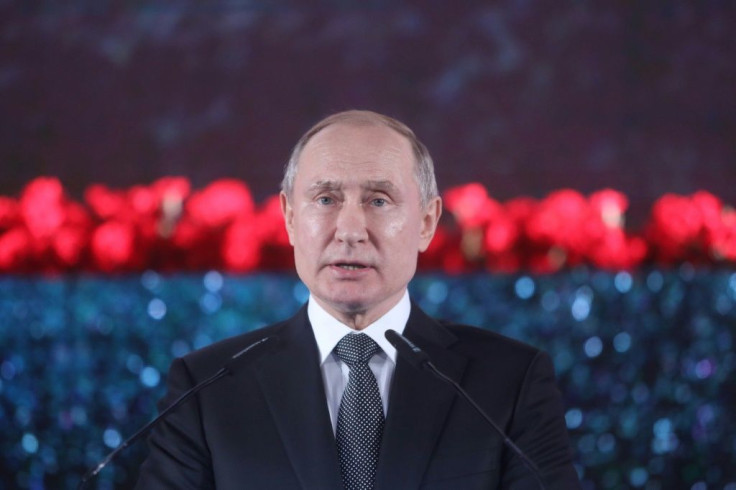Who Is Mikhail Khodorkovsky? Dutch Court Orders Russia To Pay $50B To Former Tycoon

KEY POINTS
- Russia plans to appeal against the Dutch appeals court order
- Khodorkovsky amassed wealth during the post-Soviet days of frenzied privatization
- Khodorkovsky's funding of opposition parties believed to have riled Putin
A Dutch appeals court order upholding an international arbitration award asking Russia to pay the shareholders of Moscow-based former oil giant Yukos $50 billion in compensation is seen as a blow to Russian President Vladimir Putin. The court order that upturned a Hague district court’s decision annulling the tribunal decision brings back to focus the chequered career of oil baron Mikhail Khodorkovsky, who fell foul of Putin and went to jail.
The case arose after Yukos was declared bankrupt and merged with the state-controlled Rosneft following tax evasion charges amounting to $27 billion in 2006. As Yukos chief executive, Khodorkovsky, who Forbes magazine once called the world’s 16th richest man, landed in jail. He was incarcerated for 10 years on charges of tax evasion and theft until Putin granted him clemency in 2003.
Meteoric rise during Boris Yeltsin’s privatization drive
Putin granted Khodorkovsry clemency on the ground of mother's illness, following which he flew to Germany where he vowed to stay out of politics. He said he would not return to Russia unless he was sure he would be a free person.
The appeals court order of Feb. 18 overturned a 2016 ruling by a Hague district court that canceled the compensation order on the grounds that the Permanent Court of Arbitration lacked the jurisdiction as the case was based on an energy treaty that Russia had signed but not ratified, according to a report on Radio Free Europe website. Russia's Justice Ministry said it will appeal the appellate court’s decision, which ruled that the 2016 decision quashing the arbitration decision “was not correct." The arbitration tribunal had ruled that Moscow seized Yukos control in 2003 by saddling the company with massive tax claims.

Russians associate the tycoon’s meteoric rise with President Boris Yeltsin’s privatization drive in the 1990s. As head of the biggest oil company, Khodorkovsky apparently became a target of Putin when he assumed power in 2000, according to a character sketch on the BBC News website.
Bough Yukos for just $350 million
Forbes magazine once estimated the fortune of Khodorkovsky, 50, at more than $15 billion, mostly amassed from the controversial privatization of Soviet state assets. Like many youths of his time, Khodorkovsky, a native of Moscow and the son of two engineers, started as a loyal member of the Soviet Communist Party and got into a computer import business supported by the party’s youth wing. He founded a bank, Menatep, in 1987 when the Soviet experiment was in the throes of disintegration following then Soviet Communist party general secretary Mikhail Gorbachev’s policies of glasnost, or openness, and perestroika, or restructuring, moves.
During the 1990s privatization turmoil, Khodorkovsky will use the bank and scores of other companies he started to pick up collapsing state businesses and build his empire. Reports say he picked up Yukos, a state oil company, in 1995 at a state auction for a measly $350 million. The company would go on to become post-Soviet Russia’s second-biggest oil firm, producing a fifth of all crude in the country. Khodorkovsky's meteoric rise saw him serving as deputy fuel and oil minister under Yeltsin.

Khodorkovsky’s fortune suffered after Putin succeeded Yeltsin in 2000. He was arrested in 2003 on charges of tax evasion, embezzlement and fraud. He was jailed for eight years in 2005 and Yukos declared bankruptcy two years later. He was convicted of embezzlement and money laundering in a second case in 2009. Khodorkovsky filed a clemency plea with President Putin in 2013, citing his mother's ill health, and was granted a pardon.
Politics behind 'trumped up' charges
Khodorkovsky’s activities in funding opposition parties including the Communist Party are believed to have led to a witchhunt and his later incarceration. His lawyers maintained the charges against him were trumped up at the behest of Kremlin because of his political activities.
The European Court of Human Rights has ruled that Khodorkovsky and his business partner, Platon Lebedev, who spent more than 10 years in prison, were denied their right to a fair trial.
© Copyright IBTimes 2025. All rights reserved.





















